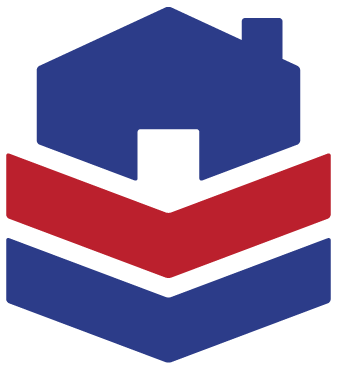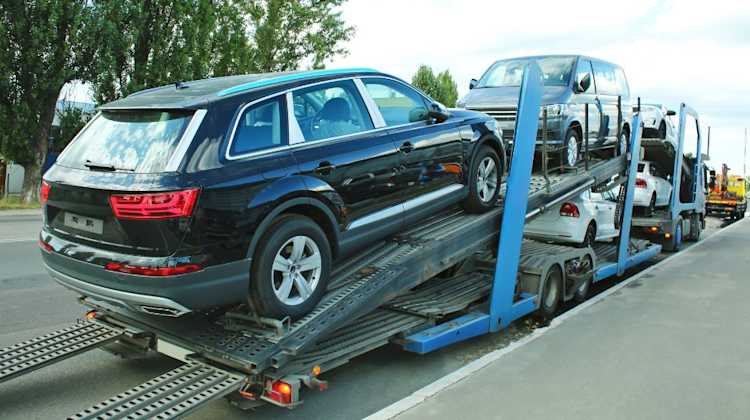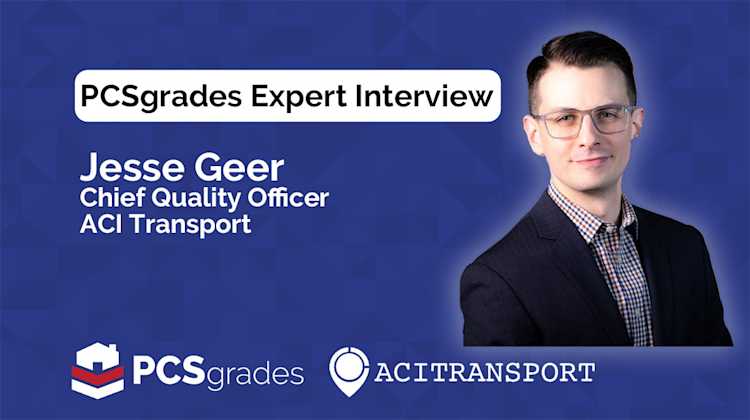Moving OCONUS - An Overseas PCS Guide for Military Families
by PCSgrades Staff - April 11th, 2022
Through a three-part series, Moving OCONUS: Before, During, and After, PCSgrades helps you navigate the ins and outs of moving OCONUS (outside the continental U.S.), from the minute your spouse walks in and yells “Kon’nichiwa!” or “Guten Tag!” to the time you land back stateside.
The overseas PCS adventure begins
We all know that no matter how hard you prepare, how many lists you make, or how many times you’ve done it before, MOVING IS STRESSFUL! This is true whether you move across town or across the world.
However, when you add in language barriers, distance from loved ones, and an incredible amount of unknowns, this stress can be amplified dramatically. PCSgrades is here to help alleviate some of the stress as you navigate the OCONUS PCS.
Overseas sponsors: Your connection for moving OCONUS
Each military service member will receive a sponsor when moving OCONUS. Typically, this overseas sponsor is an active duty member currently stationed at that overseas base who can help you prepare for your move and welcome you after you arrive.
Connect with your overseas sponsor as soon as possible. Your sponsor can help you navigate the who, what, when, where, why, and how of an overseas move, because they have already been through the process. They can help you set up mailing addresses ahead of your move, connect with housing, give information about the local area, and more.
Best of all, your sponsor has probably experienced the surprises and hiccups of moving overseas already, so they can keep you from making some of the same mistakes.
Take advantage of email, social media, FaceTime, Skype, etc. to forge a relationship with this service member or family who will become your lifeline to all things about the new duty station. Ask questions and then ask more questions. It’s ok to discuss culture, what to pack, electric outlet plugs, local schools, passport questions, and more. Be honest about your needs and concerns and ask them to do the same. It is true that the only stupid question in this scenario is the one you don’t ask.
PCSgrades can help make your overseas PCS a little easier, too. Check out our free area guides to learn more about your next duty station.
Passports and visas required for an overseas PCS
You will need a "no-fee passport" to travel on your military orders, so this passport is a must. You may also need a visa to travel to and from your new host country. Check with your sponsor or the relocation specialists at your new duty station to learn which documents you need. You will begin your no-fee passport applications through the military chain of command and admin office.
Because your no-fee passport is clearly marked “To be used on official travel only,” it should not be used for vacation and leave travel while overseas. We highly suggest getting a standard tourist passport as well. To do any traveling while stationed overseas, this passport will be required for all family members.
You can apply for tourist passports using the standard application found on the DoD website. Have photos taken at any Walgreens or CVS location that does passport photos, then complete your application at a post office or other official application site. Plan ahead because the standard time to process tourist passports is currently 8-11 weeks (though they can be expedited for a fee.)
Get out and explore
My friends who love their OCONUS duty stations are the ones who get out and explore their surroundings. Take advantage of all of the food, entertainment, and culture your host country and its neighbors have to offer. Don’t forget, part of your job once you go OCONUS is to make those of us left in the U.S. jealous with all of your amazing travel pictures!
Before you head overseas, leave a review of your current housing and help other military families.
Family relocation clearance
The steps for receiving clearance can be time-consuming, so don’t wait to get the ball rolling. Your family won't receive hard orders for your overseas PCS until each family member is medically cleared. This process can take even longer if one or more members of your family are classified as EFMP.
You can begin the clearance process on base by researching the office handling overseas screening paperwork for family members. You will also need each member to visit the base dental facility to be cleared.
While this screening process will probably be tedious, it is in place for your family’s protection. The military needs to be sure that any medical and educational resources you or your children may need are readily available when you move. If you rely on prescription medication or specialist doctors that may not be available at the overseas base, then it is in everyone’s best interest to learn about that problem now, rather than several months after a costly and inconvenient move.
Without the entire family being cleared, the service member may face unaccompanied orders overseas.
Unaccompanied vs. household goods shipments
One big difference when moving OCONUS is that you will get two separate shipments of your belongings:
Unaccompanied shipment
The unaccompanied (sometimes called express) shipment is a small quantity of your belongings that will be flown overseas and arrive around the same time you do.
Household goods shipment
Your household goods (HHG) shipment contains the furniture and everything else you own. This shipment travels via boat and can take several months to arrive at the new location.
Plan out your unaccompanied and household goods (HHG) shipments carefully. Your unaccompanied items are those you think you will need shortly after you arrive at your new duty station (think sheets, towels, toys, extra clothes, military gear, baby gear, electronic gaming devices, some kitchen supplies, etc.) with the goal being that these items arrive well before your HHG. In a perfect world, this shipment should arrive shortly after you do.
You can ask your sponsor if the base provides any kitchen items, dishes, or loaner furniture while you are staying in temporary housing and waiting on the rest of your HHG. Different bases handle it differently, but knowing what is going to be available there will help you choose what to send first in the Unaccompanied shipment.
Read more here about what to pack in your express shipment.
Packing for your overseas PCS
On packing day, make sure to clearly mark, and preferably place into a separate room, all of your unaccompanied items. You can also schedule a separate packing date for these items, to give them a head start. You don’t want to arrive only to realize that you never separated the items you need to get by!
Want to read more about PCSing OCONUS? Find part 2 of this series here and read part 3 here.







